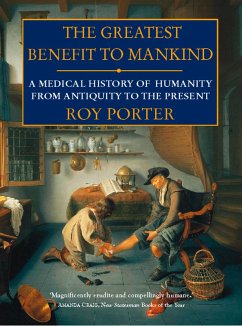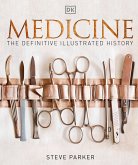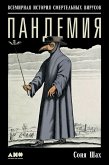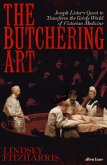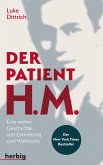Medicine advances ever faster, and with it a capacity not just to overcome sickness, but to transform the nature of life itself. Beginning in antiquity, Roy Porter's titanic history examines the traditions of both East and West to chart how this revolution came about and how life for human beings, in some parts of the world at least, has ceased to be nasty, brutish and short. 'The Greatest Benefit to Mankind' becomes from the moment of publication the standard work on its subject. It is also a magnificent entertainment and a delight to read.
"A superb book - fluent, lucid, scary and even funny...essential reading; first, because Porter is a brilliant and central anatomiser of our present predicament and second, because, to a large extent, medicine 'is' our present predicament - the violent battlefield at the intersection of what we think we know and what we think we are. There is no more urgent place to be, no more, in the highest sense, topical book to read."
BRYAN APPLEYARD, SUNDAY TIMES
"Hypochondriac heaven - a gripping, scholarly, fact-packed, must-have book."
VAL HENNESSY, DAILY MAIL
"A monumental work... Porter's deftness in synthesising both historical and technical material, and his ability to give flesh to his arguments, turns what might have been a stolid narrative into an enthralling story...Magnificent."
KENAN MALIK, INDEPENDENT ON SUNDAY
"Whether you are interested in the advent of the stethoscope, the history of yellow fever, the bubonic plague or coronary heart disease, the feminist influence on medicine, drug abuse, chilbearing or cancer, this book provides the historical background to these and other medical questions...this is a first-class introduction to medical history. Like a well constructed broadsheet leader, it excites thought and discussion."
THOMAS STUTTAFORD, THE TIMES
"A splendid text that will be of huge value to most professional practitioners, students and general readers. Certainly no medical student in the English-speaking world will want to be without it...I cannot but marvel at this magnificent book, which, after it has left my bedside, will take pride of place on my reference shelf."
JOHN CORNWELL, LITERARY REVIEW
"Roy Porter has succeeded triumphantly...In recent discussions surrounding the Booker Prize, contemporary readers were accused of deserting fiction for biography or history. This compulsively readable book makes it easy to see why."
STEPHEN LOCK, EVENING STANDARD
"A superb book - fluent, lucid, scary and even funny...essential reading; first, because Porter is a brilliant and central anatomiser of our present predicament and second, because, to a large extent, medicine 'is' our present predicament - the violent battlefield at the intersection of what we think we know and what we think we are. There is no more urgent place to be, no more, in the highest sense, topical book to read."
BRYAN APPLEYARD, SUNDAY TIMES
"Hypochondriac heaven - a gripping, scholarly, fact-packed, must-have book."
VAL HENNESSY, DAILY MAIL
"A monumental work... Porter's deftness in synthesising both historical and technical material, and his ability to give flesh to his arguments, turns what might have been a stolid narrative into an enthralling story...Magnificent."
KENAN MALIK, INDEPENDENT ON SUNDAY
"Whether you are interested in the advent of the stethoscope, the history of yellow fever, the bubonic plague or coronary heart disease, the feminist influence on medicine, drug abuse, chilbearing or cancer, this book provides the historical background to these and other medical questions...this is a first-class introduction to medical history. Like a well constructed broadsheet leader, it excites thought and discussion."
THOMAS STUTTAFORD, THE TIMES
"A splendid text that will be of huge value to most professional practitioners, students and general readers. Certainly no medical student in the English-speaking world will want to be without it...I cannot but marvel at this magnificent book, which, after it has left my bedside, will take pride of place on my reference shelf."
JOHN CORNWELL, LITERARY REVIEW
"Roy Porter has succeeded triumphantly...In recent discussions surrounding the Booker Prize, contemporary readers were accused of deserting fiction for biography or history. This compulsively readable book makes it easy to see why."
STEPHEN LOCK, EVENING STANDARD
Dieser Download kann aus rechtlichen Gründen nur mit Rechnungsadresse in A, B, BG, CY, CZ, D, DK, EW, E, FIN, F, GR, HR, H, IRL, I, LT, L, LR, M, NL, PL, P, R, S, SLO, SK ausgeliefert werden.

